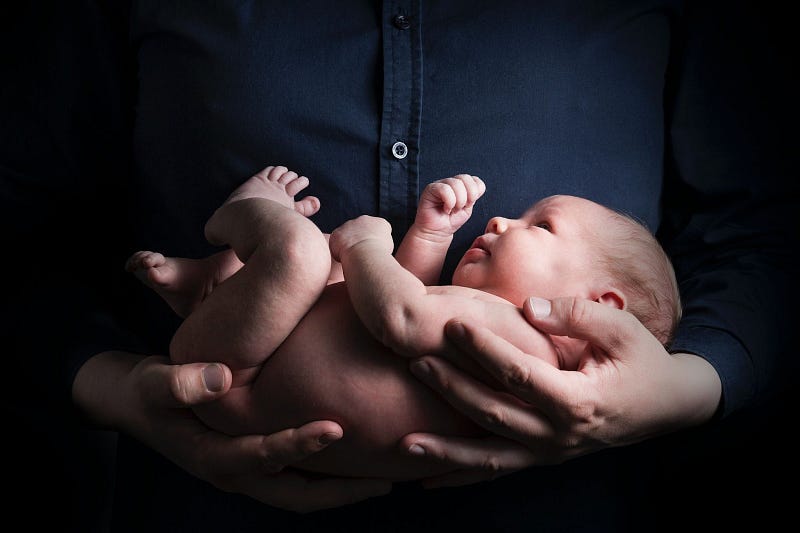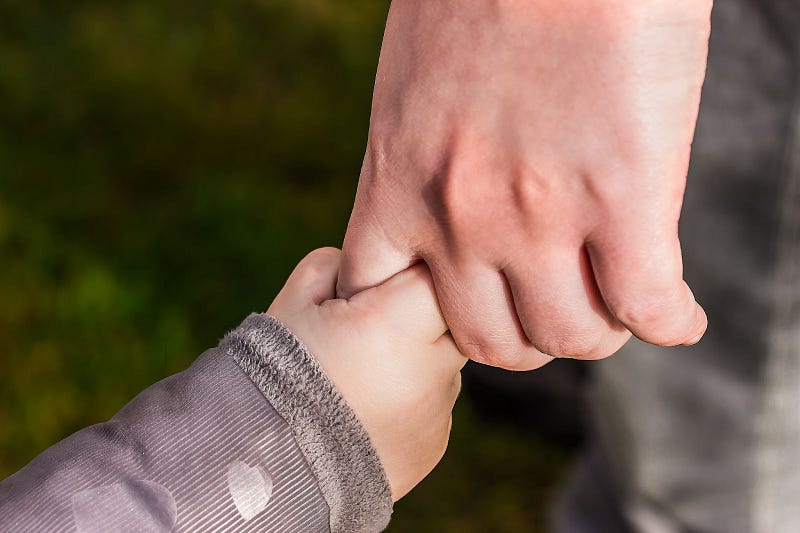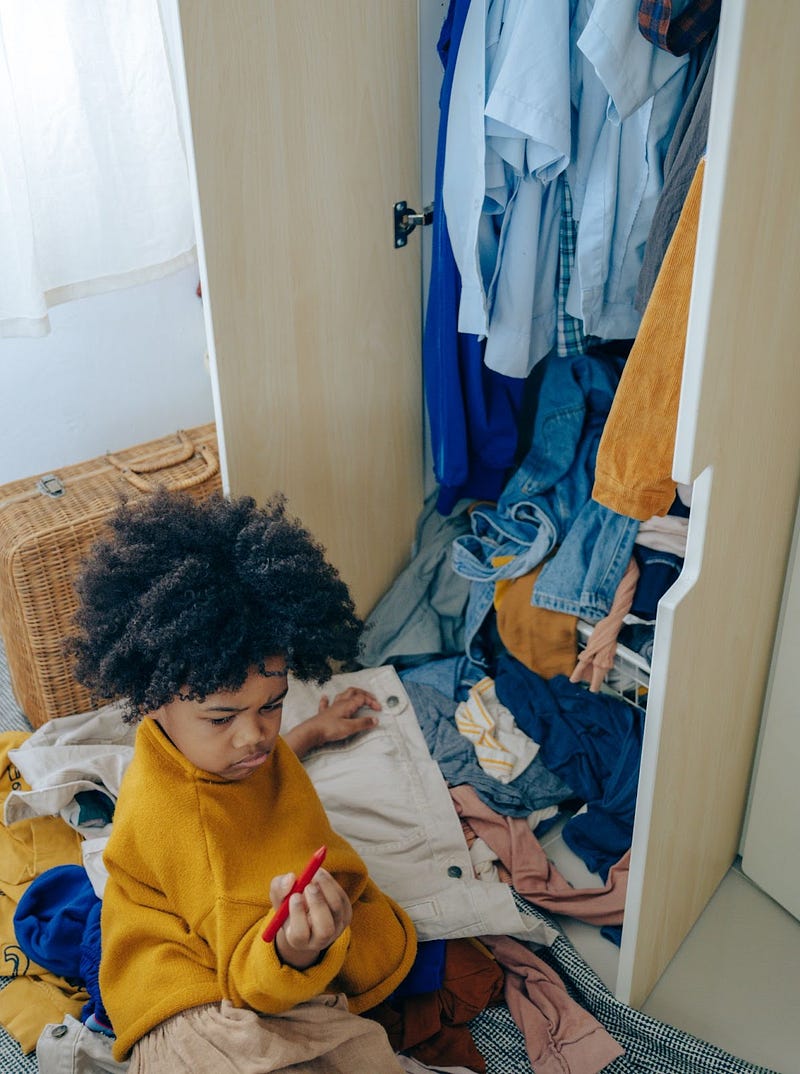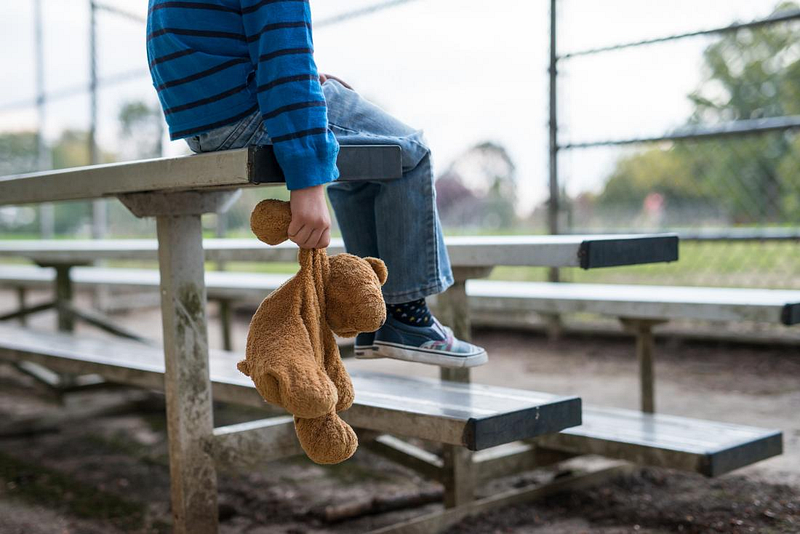Perfect Parenting: A Paradox?
Disclaimer: This article is written based on the opinion of the author and does not in any way reflect the view of the organisation.
Disclaimer: This article is written based on the opinion of the author and does not in any way reflect the view of the organisation.
This article isn’t meant to serve for contraceptive purposes. By all means, go ahead and create your own progeny. The aim of this writing is simply to make you aware of all what comes with having a child. I shall also extend a tender apology for those triggered by this content.
As painful as it sounds, having your little human comes with big responsibilities. Children start to store memories by the age of 2.5. You want to make sure that those memories are not corrupted, else it imprints on their minds like ghastly scars. That is why building a safe haven for them is important. You comb their hair. You braid their hair. You kiss them goodnight. Unfortunately, it isn’t enough. It isn’t enough if you do not protect them. What your kid needs is security, security within the love, and love within the security.
However, this propels us towards this very important question. Should we punish our children or not ? And if yes, to what extent.
Ever since the promulgation of the Children’s Act 2004, section 58(d) in the UK:
‘Battery of a child causing actual bodily harm to the child cannot be justified in any civil proceedings on the ground that it constituted reasonable punishment’;
Parents may feel like they are walking on eggshells. While it is unlawful to exert violence on a child, the defence of reasonable punishment for smacking is occasionally accepted; albeit courts accept it very limitedly.
DIONYSIAN CHILD
To guide your small human is imperative. Kids are pure instinct and possess an honesty that sometimes reeks of brutality. How many kids openly verbalise that they find somebody ugly? The numbers are not small. From this perspective, it is not hard to understand why the child was coined by Chris Jenks (2005) as the Dionysian Child. In Greek mythology, Dionysus was the prince of wine, revelry and nature, people use him as a direct dichotomy of Apollo. The Dionysian child is thus of impish tendency and harbours potential evil since The Dionysian is an impetus known to wreak havoc and cause destruction. In other words, it’s emblematic of wild nature. The child has long been associated with this quality, so how do we correct those little mishaps then?
NATURE OF YOUR LITTLE ONES
However, it is ignorant and shallow to claim that the child is everything evil and nothing pure. Actually, a baby who just crawled out of the womb is uncorrupted, both body and mind. He knows nothing of the outside world and his memory is clean. He will cry and will have to eat, yes, but he does only what is instinctual to him and behaves purely in a survival mode. Children do not have the mental cognition to discern between what is socially right or wrong.

Hence, a kid who is acting out is not a ‘bad’ kid for he knows not of the impact of his capricious behaviour. Let your wild kids throw tantrums. Scold them later if need be. Let your wild kids cry. They do what their body is programmed to do. Let kids be kids.
Now addressing the punitive measures to take to slowly and surely correct your progeny. A few days ago, I joined a Christianity club out of curiosity. I met a friend there who shared something unbelievably touching with me and might I confess, it pulled at my heartstrings a little bit.
He asked me when I felt most loved by my parents, I replied that it is when they spoke of God to me. In turn, he said that he felt the love that his parents harboured for him when they used to punish him for his wrongdoings. Obviously, he must have realised that it was love, years after. I still remember the sparkle in his eyes, they shone and almost blinded me in my own melancholy. The respect he cultivated for them was so prominent that it humbled me. On that day, his heart spoke, and I will testify that it was, a clean heart. Now, some people might say that this is indubitably a case of masochism: people feeling loved upon being punished, but that would be a violation of something so pure and so true: a parent’s undying love for his child. This did send me into quite the paradox as well. It is unlawful to cause battery to a child. The question that dwells though, is whether lightly smacking your child is beneficial in the long term or if there are other options.

GENTLE PARENTING
Gentle parenting is a domain that is being explored very profoundly lately, you must have heard of it. Gentle parenting is a methodology that focuses on building and earning your child’s respect. It is built on the foundation of good communication; taking the time to calm yourself down, getting on your knees, eye level with your kid and explaining to them that what they are doing is not right. It is the best approach, as confirmed by psychologists and paediatricians. However, it takes an adult a myriad of times to finally get a child to calm down.
Would lightly smacking hence, be a better option? This area of thought is sensitive and I would request we all remain open-minded in its discussion.
REASONABLE SMACKING?
Some people think that smacking their children very lightly is more effective than other methods. Another approach that is currently rampant is the reward-approach: when children exhibit irrationality or violent behaviour, they get their toys taken away. On the contrary, when they behave accordingly, they get rewarded with their favourite snacks as a thank you.
However, there is a perspective that says lightly hitting your child without causing injury is more beneficial in the long run as compared to the reward approach. Taking away something that is very precious and sentimental to your child mentally tortures them and plunges them into a pool of regret, guilt, pain and loss. They can even develop traumatic responses in accordance to those incidents when they grow up.
A small hit on the hand is a firm chastisement. The child quickly and instantly absorbs the fact that he has committed wrongdoing. This analysis is backed up by Dr.Den Trumbull, U.S. paediatrician and Vice President of the American College of Paediatricians in his guidelines.
Smacking should always be a planned action, not a reaction, by the parent and should follow a deliberate procedure.
The child should be forewarned of the smacking consequence for designated problem behaviours.
Smacking should always be administered in private (bedroom or restroom) to avoid public humiliation or embarrassment.
One or two smacks should be administered to the buttocks. This is followed by embracing the child and calmly reviewing the offence and the desired behaviour in an effort to re-establish a warm relationship.
Those guidelines cater for the appreciation of disciplinary spanking or light smacking, done only under necessary circumstances.
CHILD ABUSE
This article should not be confused for advocating for child abuse. Child abuse without discussion, nibbles away at our harmonious social fabric like termites, giving birth to trauma. Abused and neglected children are 11 times more likely to engage in criminal behaviour when they grow up. Parents who are not able to protect their children from their own generational trauma or from their own violence, transfer deep psychiatric injuries to their kids, scarring them for life. Their fear paralyses them throughout their lives and can contribute to destroying the probability of them leading a healthy and stable life. Laura Davis states in her book ‘Allies in Healing’ that victims of abuse have only one recourse, and it is to shut down. Their feelings go underground.
ENMESHMENT TRAUMA
Let this article serve as testament that letting your child inherit your generational trauma is unsound. However, it is often misunderstood that neglecting or abusing your kid is the only trauma response there in the books. Coddling your child is equally poisonous. Indulgence chokes the goodness out of the child, producing a spoiled brat. The terminology enmeshment trauma, introduced by Salvador Minuchin (1921–2017), perfectly reflects the quandaries created when parents are overly involved in their child’s life. It is often disregarded that children need to learn from life itself. Parents force it down their throat and forget that being a parent is not being a friend.
Children who are emotionally “parentified” face a lot of difficulties in the future. Personal boundaries may be lacking, permeable or blurry. Communication levels being too high means that parents talk about anything and everything to their kids, their sexual life, their work life or their problems. Who knew there could be such a thing about too much communication? People who are used to such high levels of communication do not know how to handle conflicts, since they are used to people understanding them.
Suffocating your child with your love stifles their sense of identity. They will be nothing without you. At some point, an individual needs to detach from the womb. Otherwise, they will face unwanted consequences in their adulthood. Some people expect their partners to coddle them the same as their parents did. Others deal with a fluctuating sense of self-esteem, especially in a world where individualism is smiled upon. They never got the opportunity to discover themselves. For sure, being under your parents’ wings is cozy; but for growth, you need to spread your own wings, as corny as it sounds. Overall, the enmeshment trauma is real and should be avoided at all costs.
For sure, we recognise the fact that parenthood is not a subject taught at school or involved in the school curriculum. Parenting is a process whereby you learn as you go through it, almost as if you are experiencing life for a second time through your offspring. You slowly grow conscious of your adequacies or your strengths and mould something graceful out of it. Your child is like your little pot of clay, but here is the dealbreaker: you cannot mould him to suit your preferences, you must mould him to be able to sustain the high and lows of life. I concur that it is hard to depart from something that belongs to you; your right to their birth. I know it is painful. I know it is tough. But I promise you, when you let go accordingly, the end result is the most beautiful.
[Written by : Kawthar Sahaduth. Edited by: Teoh Jin]





